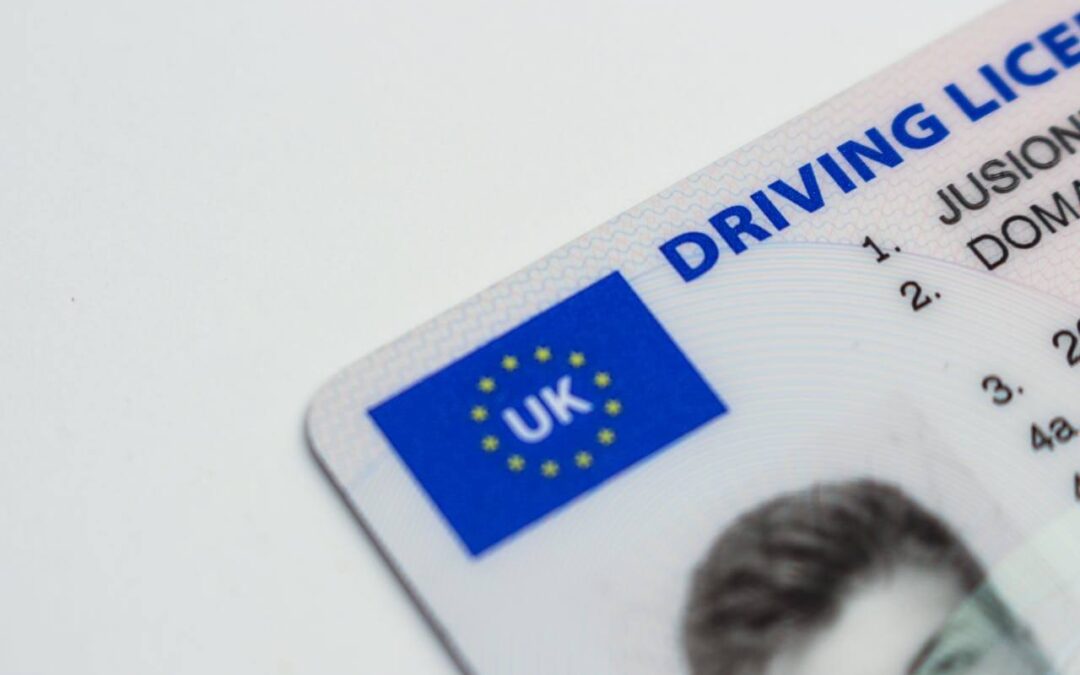Planning a trip to Thailand and want to explore at your own pace? Renting a car might just be the perfect solution. Facing the task of understanding how to rent a car in Thailand with an international license can seem tough at first.
Here’s one fact you should know: having an international driving permit often makes the process smoother and opens up more rental options.
This blog will guide expats through everything from obtaining an international driver’s permit to navigating local driving laws. We’ll cover how to choose a reliable car rental company, understand the booking process, and share essential tips for driving in Thailand.
Ready to hit the road? Keep reading. to find out how to Rent a Car in Thailand with an International License.
Requirements for Renting a Car in Thailand
To rent a car in Thailand, you need a valid driving licence. You also must provide proof of identification and meet the age requirements set by rental companies.
Valid driving licence (foreign or international)
To drive in Thailand, you need a valid driving licence. This can be either foreign or international. Many rental companies require an International Driving Permit (IDP) along with your national licence.
Without it, you might face issues when renting a car or getting insurance.
Always check that your driving licence is valid before arriving in Thailand. Age requirements for renting a car also apply, so make sure to meet them as well. Having the right documents ensures a smoother experience while enjoying the freedom of exploring Thailand by car.
Proof of identification
Car rental companies in Thailand require proof of identification from all renters. You must present a valid passport along with your driving licence. Both can help verify your identity and confirm that you meet the local regulations for renting a vehicle.
Expats should ensure their documents are current and clearly readable.
Some companies might ask for additional identification, like a utility bill or bank statement, to prove your address. Keep copies of these documents handy during your trip as they may be needed at various points.
Having proper proof streamlines the process and ensures compliance with car rental regulations in Thailand.
Age restrictions
In Thailand, age restrictions apply to renting a car. Most rental companies require drivers to be at least 21 years old. Some firms may set the minimum age higher, often at 23 or even 25.
Younger drivers might face additional fees for being underage.
Drivers over 70 may also encounter specific policies. Certain rental agencies impose upper age limits or ask for special documentation from older renters wishing to hire a vehicle in Thailand.
These rules aim to ensure safety on the roads while complying with local driving regulations and international driver’s license requirements.
Credit card for security deposit
Most car rental companies in Thailand require a credit card for the security deposit. This deposit acts as insurance against any damages or extra charges during your rental period.
It’s important to check if your credit card has enough balance to cover this amount.
Before you collect the car, ensure that your name appears on the credit card. Companies usually do not accept cards from another person. Some may have specific policies regarding foreign cards, so confirm these details beforehand to avoid surprises at pickup.
How to Choose the Best Car Rental Company in Thailand
To choose the best car rental company in Thailand, you should research and compare several options. Focus on customer reviews and ratings to gauge experience quality. Consider prices that fit your budget and the types of cars each company offers.
This approach will help you find a reliable option for your travel needs. Curious about more details? Keep reading!
Research and compare options
Start your car rental journey by researching available options. Many companies operate in Thailand, so take time to look at their offers. Compare prices and vehicle choices. Some companies might specialise in luxury cars while others focus on budget options.
Reading customer reviews helps you understand what to expect. Ratings can reveal the quality of service a company provides. Check if they have good policies for returning vehicles and managing deposits.
Knowing these details prepares you for renting a vehicle in Thailand with an international licence as an expat.
Read customer reviews and ratings
Customer reviews and ratings offer valuable insights into car rental companies in Thailand. Many expats rely on these evaluations to make informed choices. Positive feedback often highlights reliability, customer service, and vehicle condition.
Conversely, negative reviews can reveal issues such as hidden fees or poor support.
Prospective renters should consider both high ratings and detailed comments before deciding. This practice ensures they select a trustworthy provider that meets their needs for renting a car in Thailand with an international licence.
Following this step helps streamline the booking process for car rental in Thailand.
Consider prices and car categories
Prices for car rentals in Thailand vary significantly. Budget-friendly options exist alongside luxury vehicles. Research different categories such as economy, compact, SUV, and premium cars.
Compare rates from multiple rental companies to find the best deal.
Many expats prefer renting a vehicle suited to their needs. A smaller car is ideal for city driving, while an SUV offers more space for family trips. Keep your budget in mind while exploring these choices.
Next, consider the booking process for car rental in Thailand.

Booking Process for Car Rental in Thailand
Booking a car in Thailand is quite straightforward. You can choose to book online or visit the rental office in person.
Online or in-person bookings
You can book a rental car in Thailand either online or in person. Many choose online bookings due to convenience. Various websites offer easy comparisons of prices and vehicles. You can often find special deals that save you money.
In-person bookings are also an option for those who prefer direct interaction. Visiting a local car rental office allows you to ask questions about the vehicles available and clarify any doubts regarding driving regulations in Thailand.
Regardless of your choice, ensure you have your international driving licence ready, along with other necessary documents for renting a car abroad.
Payment policies and pricing
Car rental companies in Thailand offer various payment policies. Many require a credit card for security deposits. This deposit typically ranges from 5,000 to 20,000 Thai Baht, depending on the vehicle’s value.
Some firms accept debit cards but may impose stricter conditions or additional charges.
Pricing varies by company and car category. Luxury vehicles cost more than economy cars. Be aware of extra fees like insurance or fuel options that may apply during your rental period.
Understanding these costs helps expats budget effectively while enjoying the freedom of driving with a foreign driver’s license in Thailand.
Additional charges and optional extras
Rental companies in Thailand often impose extra charges. A common fee includes insurance, which can protect you from unexpected costs. Look for options like collision damage waivers and theft protection.
Extras may also include GPS rental or child seat hire. These items come with additional fees but can enhance your driving experience. Always confirm these charges before finalising your booking to avoid surprises later on.
Remember, understanding the payment policies helps ensure a smooth rental process as an expat in Thailand.
Tips for Picking Up and Driving Your Rental Car in Thailand
When you pick up your rental car in Thailand, check the vehicle carefully. Familiarise yourself with local driving rules to ensure a smooth ride.
Familiarise yourself with local driving laws
Driving laws in Thailand can differ significantly from those in your home country. Expats must understand these rules before hitting the road. Thailand drives on the left side of the road, which may take some getting used to.
Speed limits often range from 50 km/h in towns to 90 km/h on highways.
Seatbelts are mandatory for all passengers. You could face fines for not wearing one. Alcohol limits are strict; avoid drinking and driving altogether to stay safe and compliant. Keeping a valid International Driving Permit is essential too, as it legitimises your foreign driver’s license in Thailand.
Understanding these driving laws helps ensure smooth travels while you enjoy exploring this beautiful country with your rental car.
Inspect the car before driving off
Inspect the car before driving off. Check for any scratches, dents or damages on the exterior. Look inside for cleanliness and functioning equipment. Test the brakes, lights and wipers to ensure they work well.
Take photos of any existing damage before you leave the lot. This step protects you from being charged for pre-existing issues later.
Understand your rental company’s fuel policy too. Make sure both parties agree on how much fuel is in the tank at pickup. Returning a car empty may lead to extra charges, so clarify these details first.
Knowing these factors will help prevent surprises when renting a car in Thailand as an expat with an International Driving Permit.
Ensure proper fuel fill-up and return policies
Filling up the fuel tank before returning your rental car is crucial. Most companies require you to return the vehicle with a full tank. Check their policy on this matter when you rent the car.
Some rental services offer a “full-to-full” option, meaning you pick it up full and must return it full. Others might provide a full tank but charge for fuel if you don’t refill before returning.
Always clarify these details to avoid extra charges during your trip in Thailand. Understanding how these policies work can save you money while enjoying hassle-free transportation as an expat.
Return the car on time and in good condition
After ensuring proper fuel fill-up and return policies, focus on returning the car on time and in good condition. Car rental companies in Thailand often charge extra fees for late returns.
Make a plan to arrive at the drop-off location ahead of schedule.
Inspect your rental vehicle before handing it back. Clean the interior and exterior if necessary. Look for any damage you may have caused during your trip as this can impact your deposit.
Returning the car in good shape helps avoid additional charges and ensures a smooth end to your rental experience as an expat navigating driving laws in Thailand.
Rent a Car in Thailand with an International License
Renting a car in Thailand is straightforward with an international license. You need a valid driving licence, proof of identification, and a credit card for the deposit. Comparing rental companies helps you find the best deal.
Reading customer reviews gives insights into each option. Understanding local driving laws ensures a safe trip around Thailand. Take action today and explore the beauty of this vibrant country on your own terms!
SPS Car Hire is the perfect place to go when you need to Rent a Car in Thailand with an International License. Please click on the button below to start your rental journey now.


